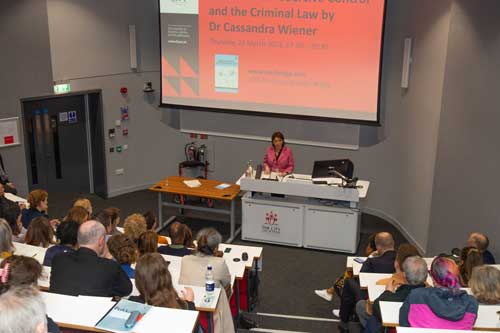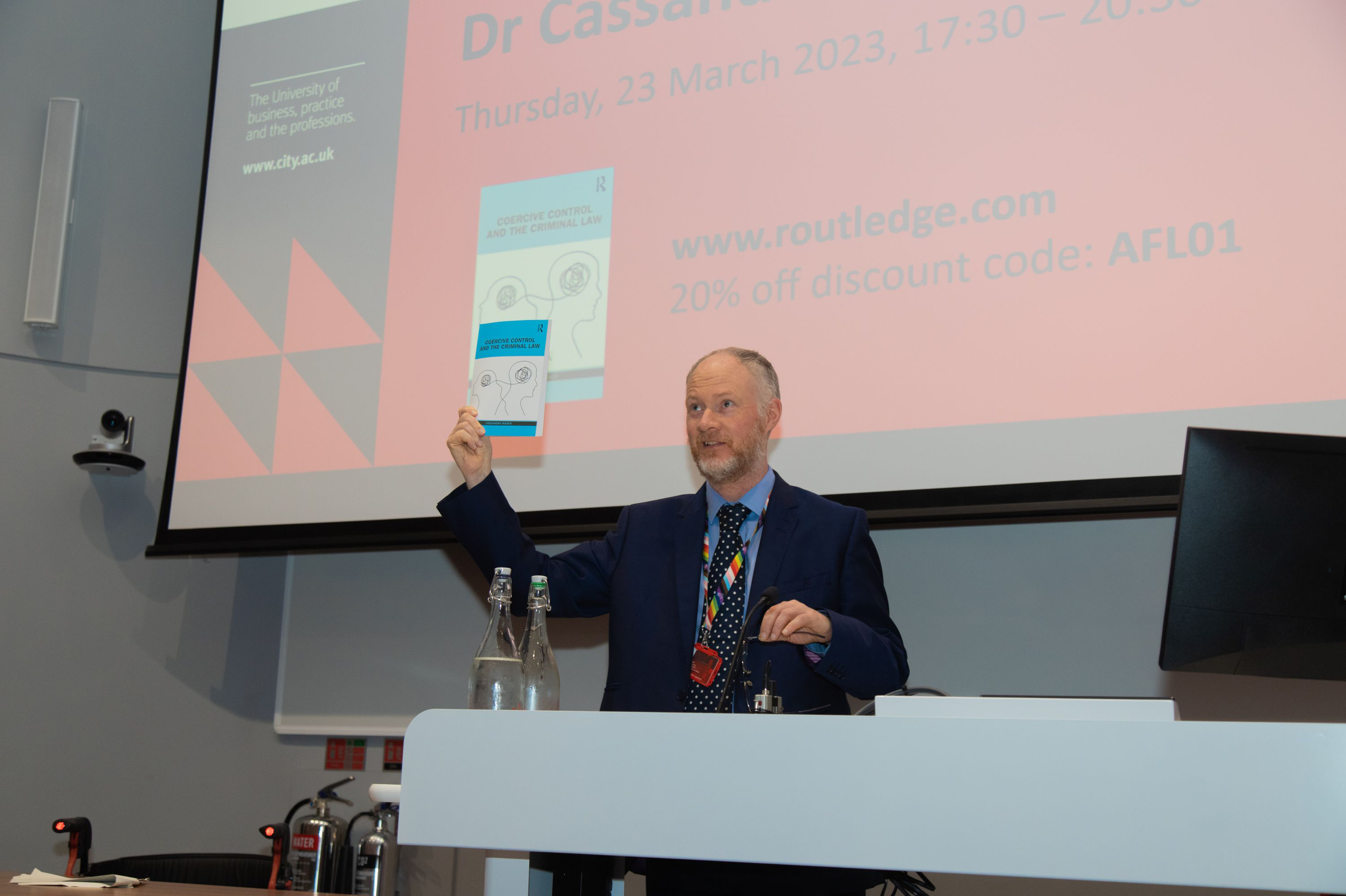Dr Cassandra Wiener launches her important book before a gathering of survivors, activists, criminal lawyers, policy makers and practitioners.
By City Press Office (City Press Office), Published
The launch of Dr Cassandra Wiener’s new book, Coercive Control and the Criminal Law (Routledge) took place in the City Law School building on 23rd March 2022.
The recognition of coercive control as a particularly insidious and dangerous form of domestic abuse has been relatively recent, and England and Wales have led the way by being the first jurisdiction in the world to make it a criminal offence.
Dr Wiener, a Senior Lecturer in The City Law School whose research expertise is in the criminalisation of coercive control, says:
“My book is a review of this important step and I wanted it to mark this as a significant moment for survivors, activists, criminal lawyers, policy makers and practitioners all of whom were well represented in the audience.”
 She adds:
She adds:
“It was important to me when I was writing the book that the survivor experience is up front and central, and I wanted the evening to reflect this. Antonia Amja Wilmot Brown began with a calm, measured, articulate and moving account of her experiences of abuse. It was the first time that she had spoken about her experience to a large audience, but she described her journey both into and out of coercive control with a clarity and insight that left nobody in the room in any doubt as to what the behaviour is or why it matters.”
With Ms Wilmot Brown’s experience fresh in everyone’s minds, it was easier for Dr Wiener to point out why the criminalisation of this kind of abuse is challenging. Dr Wiener went on to explain how the criminal law has historically had an exclusively ‘incident specific’ focus, which is not at all suited to the prosecution of abuse which is ongoing, relational, and transcends time and space.
“I briefly set out the key findings of the book - celebrating the progressive steps that have been taken but reviewing where I think England and Wales have made mistakes, and what the important considerations are for other jurisdictions considering this step. I finished by summarising what I think needs to change and why.”

Dr Wiener said the presence of Emeritus Professor Evan Stark, David Challen and documentary filmmakers Rosie Jarvis and Annie La Vespa, were invaluable in making the book launch a complete success:
“We are so lucky that Professor Evan Stark agreed to fly over from New York to be with us for the evening. He shared his most recent analysis of coercive control as a response to women’s equality, and emphasised what he thought were the important milestones in the journey ahead for women’s movements around the world. David Challen spoke about his experiences of growing up witnessing the abuse of his mother Sally, at the hands of his father Richard, and we finished with the amazing documentary Walking on Eggshells which was made by Rosie Jarvis (Sky News) and Annie La Vespa (Channel Four news) during their time at City.
"This was a difficult event to plan in that the audience was an amazing mix: of specialists and non-specialists, voluntary sector activists and survivors, and also academics and policy makers. I think (I hope) my decision to put survivors first and foremost, to make the evening about what coercive control is and why its criminalisation matters, paid off - but I was lucky in my choice of speakers who were challenging as well as captivating and created an electric atmosphere. We moved upstairs for drinks and to admire Antonia’s art exhibition ‘Healing with Creativity’ which was beautifully laid out in the CLS building’s airy atrium.”
Dr Wiener is hopeful that the book with be used as a resource by those who can effect change in intervening into the cycle of violence against women and girls:
“Violence against women and girls seems, unfortunately, never to be far from the headlines at the moment and at a time when research is revealing the close links between coercive control and homicide, improving the criminal justice response to coercive control is moving up government agendas around the world. My hope is that my book will be a useful resource for those at the front line and behind the scenes as they decide what needs to change and how they will change it.”
